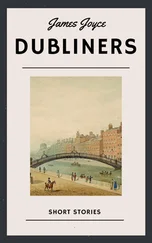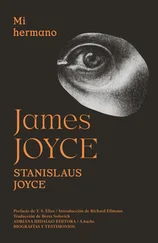James Joyce - Dubliners
Здесь есть возможность читать онлайн «James Joyce - Dubliners» весь текст электронной книги совершенно бесплатно (целиком полную версию без сокращений). В некоторых случаях можно слушать аудио, скачать через торрент в формате fb2 и присутствует краткое содержание. Год выпуска: 2001, Жанр: Классическая проза, на английском языке. Описание произведения, (предисловие) а так же отзывы посетителей доступны на портале библиотеки ЛибКат.
- Название:Dubliners
- Автор:
- Жанр:
- Год:2001
- ISBN:нет данных
- Рейтинг книги:4 / 5. Голосов: 1
-
Избранное:Добавить в избранное
- Отзывы:
-
Ваша оценка:
- 80
- 1
- 2
- 3
- 4
- 5
Dubliners: краткое содержание, описание и аннотация
Предлагаем к чтению аннотацию, описание, краткое содержание или предисловие (зависит от того, что написал сам автор книги «Dubliners»). Если вы не нашли необходимую информацию о книге — напишите в комментариях, мы постараемся отыскать её.
Dubliners — читать онлайн бесплатно полную книгу (весь текст) целиком
Ниже представлен текст книги, разбитый по страницам. Система сохранения места последней прочитанной страницы, позволяет с удобством читать онлайн бесплатно книгу «Dubliners», без необходимости каждый раз заново искать на чём Вы остановились. Поставьте закладку, и сможете в любой момент перейти на страницу, на которой закончили чтение.
Интервал:
Закладка:
"And what about the address to the King?" said Mr Lyons, after drinking and smacking his lips.
"Listen to me," said Mr Henchy. "What we want in this country, as I said to old Ward, is capital. The King's coming here will mean an influx of money into this country. The citizens of Dublin will benefit by it. Look at all the factories down by the quays there, idle! Look at all the money there is in the country if we only worked the old industries, the mills, the ship-building yards and factories. It's capital we want."
"But look here, John," said Mr O'Connor. "Why should we welcome the King of England? Didn't Parnell himself...."
"Parnell," said Mr Henchy, "is dead. Now, here's the way I look at it. Here's this chap come to the throne after his old mother keeping him out of it till the man was grey. He's a man of the world, and he means well by us. He's a jolly fine decent fellow, if you ask me, and no damn nonsense about him. He just says to himself: 'The old one never went to see these wild Irish. By Christ, I'll go myself and see what they're like.' And are we going to insult the man when he comes over here on a friendly visit? Eh? Isn't that right, Crofton?"
Mr Crofton nodded his head.
"But after all now," said Mr Lyons argumentatively, "King Edward's life, you know, is not the very...."
"Let bygones be bygones," said Mr Henchy. "I admire the man personally. He's just an ordinary knockabout like you and me. He's fond of his glass of grog and he's a bit of a rake, perhaps, and he's a good sportsman. Damn it, can't we Irish play fair?"
"That's all very fine," said Mr Lyons. "But look at the case of Parnell now."
"In the name of God," said Mr Henchy, "where's the analogy between the two cases?"
"What I mean," said Mr Lyons, "is we have our ideals. Why, now, would we welcome a man like that? Do you think now after what he did Parnell was a fit man to lead us? And why, then, would we do it for Edward the Seventh?"
"This is Parnell's anniversary," said Mr O'Connor, "and don't let us stir up any bad blood. We all respect him now that he's dead and gone—even the Conservatives," he added, turning to Mr Crofton.
Pok! The tardy cork flew out of Mr Crofton's bottle. Mr Crofton got up from his box and went to the fire. As he returned with his capture he said in a deep voice:
"Our side of the house respects him, because he was a gentleman."
"Right you are, Crofton!" said Mr Henchy fiercely. "He was the only man that could keep that bag of cats in order. 'Down, ye dogs! Lie down, ye curs!' That's the way he treated them. Come in, Joe! Come in!" he called out, catching sight of Mr Hynes in the doorway.
Mr Hynes came in slowly.
"Open another bottle of stout, Jack," said Mr Henchy. "O, I forgot there's no corkscrew! Here, show me one here and I'll put it at the fire."
The old man handed him another bottle and he placed it on the hob.
"Sit down, Joe," said Mr O'Connor, "we're just talking about the Chief."
"Ay, ay!" said Mr Henchy.
Mr Hynes sat on the side of the table near Mr Lyons but said nothing.
"There's one of them, anyhow," said Mr Henchy, "that didn't renege him. By God, I'll say for you, Joe! No, by God, you stuck to him like a man!"
"O, Joe," said Mr O'Connor suddenly. "Give us that thing you wrote—do you remember? Have you got it on you?"
"O, ay!" said Mr Henchy. "Give us that. Did you ever hear that, Crofton? Listen to this now: splendid thing."
"Go on," said Mr O'Connor. "Fire away, Joe."
Mr Hynes did not seem to remember at once the piece to which they were alluding but, after reflecting a while, he said:
"O, that thing is it.... Sure, that's old now."
"Out with it, man!" said Mr O'Connor.
"'Sh, 'sh," said Mr Henchy. "Now, Joe!"
Mr Hynes hesitated a little longer. Then amid the silence he took off his hat, laid it on the table and stood up. He seemed to be rehearsing the piece in his mind. After a rather long pause he announced:
THE DEATH OF PARNELL
6th October 1891
He cleared his throat once or twice and then began to recite:
He is dead. Our Uncrowned King is dead.
O, Erin, mourn with grief and woe
For he lies dead whom the fell gang
Of modern hypocrites laid low.
He lies slain by the coward hounds
He raised to glory from the mire;
And Erin's hopes and Erin's dreams
Perish upon her monarch's pyre.
In palace, cabin or in cot
The Irish heart where'er it be
Is bowed with woe—for he is gone
Who would have wrought her destiny.
He would have had his Erin famed,
The green flag gloriously unfurled,
Her statesmen, bards and warriors raised
Before the nations of the World.
He dreamed (alas, 'twas but a dream!)
Of Liberty: but as he strove
To clutch that idol, treachery
Sundered him from the thing he loved.
Shame on the coward, caitiff hands
That smote their Lord or with a kiss
Betrayed him to the rabble-rout
Of fawning priests—no friends of his.
May everlasting shame consume
The memory of those who tried
To befoul and smear the exalted name
Of one who spurned them in his pride.
He fell as fall the mighty ones,
Nobly undaunted to the last,
And death has now united him
With Erin's heroes of the past.
No sound of strife disturb his sleep!
Calmly he rests: no human pain
Or high ambition spurs him now
The peaks of glory to attain.
They had their way: they laid him low.
But Erin, list, his spirit may
Rise, like the Phœnix from the flames,
When breaks the dawning of the day,
The day that brings us Freedom's reign.
And on that day may Erin well
Pledge in the cup she lifts to Joy
One grief—the memory of Parnell.
Mr Hynes sat down again on the table. When he had finished his recitation there was a silence and then a burst of clapping: even Mr Lyons clapped. The applause continued for a little time. When it had ceased all the auditors drank from their bottles in silence.
Pok! The cork flew out of Mr Hynes' bottle, but Mr Hynes remained sitting flushed and bareheaded on the table. He did not seem to have heard the invitation.
"Good man, Joe!" said Mr O'Connor, taking out his cigarette papers and pouch the better to hide his emotion.
"What do you think of that, Crofton?" cried Mr Henchy. "Isn't that fine? What?"
Mr Crofton said that it was a very fine piece of writing.
A MOTHER
MR HOLOHAN, assistant secretary of the Eire Abu Society, had been walking up and down Dublin for nearly a month, with his hands and pockets full of dirty pieces of paper, arranging about the series of concerts. He had a game leg and for this his friends called him Hoppy Holohan. He walked up and down constantly, stood by the hour at street corners arguing the point and made notes; but in the end it was Mrs Kearney who arranged everything.
Miss Devlin had become Mrs Kearney out of spite. She had been educated in a high-class convent, where she had learned French and music. As she was naturally pale and unbending in manner she made few friends at school. When she came to the age of marriage she was sent out to many houses where her playing and ivory manners were much admired. She sat amid the chilly circle of her accomplishments, waiting for some suitor to brave it and offer her a brilliant life. But the young men whom she met were ordinary and she gave them no encouragement, trying to console her romantic desires by eating a great deal of Turkish Delight in secret. However, when she drew near the limit and her friends began to loosen their tongues about her, she silenced them by marrying Mr Kearney, who was a bootmaker on Ormond Quay.
Читать дальшеИнтервал:
Закладка:
Похожие книги на «Dubliners»
Представляем Вашему вниманию похожие книги на «Dubliners» списком для выбора. Мы отобрали схожую по названию и смыслу литературу в надежде предоставить читателям больше вариантов отыскать новые, интересные, ещё непрочитанные произведения.
Обсуждение, отзывы о книге «Dubliners» и просто собственные мнения читателей. Оставьте ваши комментарии, напишите, что Вы думаете о произведении, его смысле или главных героях. Укажите что конкретно понравилось, а что нет, и почему Вы так считаете.



